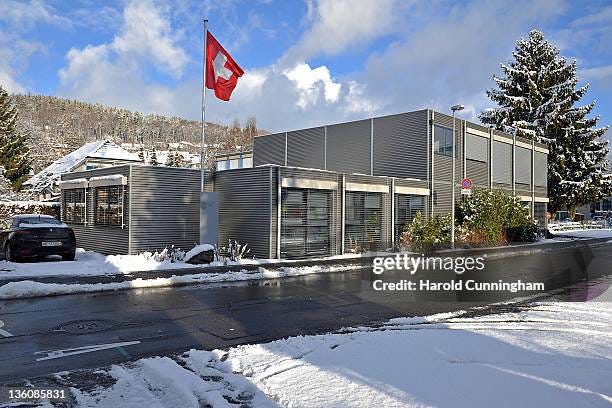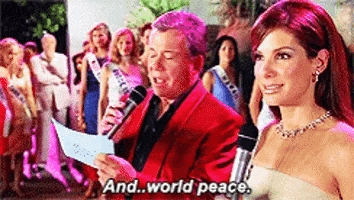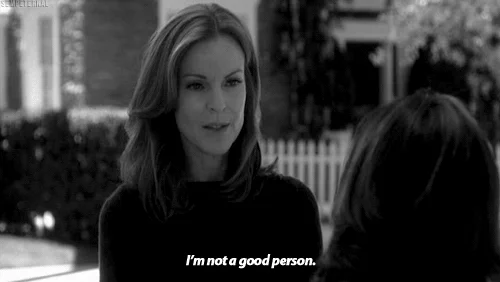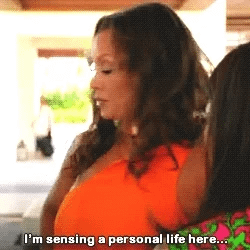I’ve mentioned it already but I love autumn. I’m writing this on the first day of the season and I’ve already found myself looking outside, trying to catch a glimpse of the green turning gold. It’s also sunny and 21 degrees but I refuse (!) to let that take away from the seasonal facts as stated by the Gregorian calendar.
Everyone loves summer and dreads the cold but I’ve been secretly willing autumn into existence for months now. Sure, summer is great – eating outside, not having to wear four layers and a raincoat to endure a commute, sunshine (not that it seems to have any effect on my pallid complexion). But autumn has a sense of renewal and optimism to me, worrying for a season so deeply associated with death. I’ve always thought of it as new beginnings, a sort of cleansing of the mind and palate; if the warm helps you escape then the cold refreshes and brings you back. I read something like this in a book called Wintering, which touched on the many benefits of the cold, and it’s stuck with me since.
In fact, my entire bookshelf is an ode to the sadder seasons and the melancholy it brings with it. Something about this kind of writing, the leaves turning, the lights dimmer, has always been a huge comfort.
When I was 19, I was so wrapped up in my obsession of sadness and autumn that I wrote a piece of fiction for my creative writing class at university; a painful (both to read and write) 4,000 word monologue about a crush I had on a man and our fleeting encounter during the autumn. I actually stumbled upon the story the other day when I was clearing out my emails, a decade late, and I winced like anyone who comes across photos of their younger selves or old facebook statuses would.
I’d called the story A Heart Like Yours in a Time Like This - ever drawn towards the melodramatic and yet another thing I’d titled after a song I loved at the time. It lent heavily on all things Fitzgerald (I was obsessed with The Great Gatsby) and the kind of love he specialised in – one that is always destined to disappear. This was the opener:
In the height of my youth, a friend once noted something that has reverberated with me a long while now.
‘Every time I see you, I am afraid you’ll disappear forever’.
He left it at that, but it was the only time I can ever remember truly understanding myself. It occurred to me in that moment, that I lived and thrived in a state of poignancy; where you teeter on the edge of happiness, forever looking over at the face of loss below, but never retreating back to that which you love. I had never thought of myself as a whole up until then; when I saw myself as translucent, where having a lack of being and definition in contrary fleshed out my person. I was more often than not drifting in and out of people’s lives, and them drifting in and out of mine, and I enjoyed the sentimentality of our flitting. Throughout my school years, I got used to the friendships that blossomed so quickly but only ever lasted for a while. I had a sentimental heart, and it became apparent to me that I needed this state of change to make me feel something, whether that something being happiness or sadness. I was unsustainable as a friend, and anything more.
Having lived in imagined heartbreak, I knew little about the reality of feeling, how the right moment can change a life; like the turn of a head, the look back upon a goodbye. I knew not about the little things.
It was then in the autumn of my 19th year, that time where we all begin to serenade adulthood and dance carefully around its obligations, when I felt my initiation into the world really started, and all this began to change. This is the story of the moon that never rose.
That I had the audacity to write “in the height of my youth” when I was 19 and then without irony introduce my tale of a crush as “the story of the moon that never rose” might explain why my lecturer – a pretty well-known writer in London – read the piece and said I was “obsessed with the romantic” and “needed to calm down”. He gave me a C+ for it – a withering analysis of what I believed was my first great love and perhaps the only dose of reality I allowed myself in those months.
Looking back, I do have some appreciation for (some of) the writing though. Past the overblown declarations and delusions, there’s something quite pure about seeing how you used to see love, or in my case write about it. Sure I was a little self-indulgent and completely off the mark but it was one of the first times I really let myself go with words. After all, it gave me a closure that reality never did.
But back to the first days of autumn. Interestingly, the first day of autumn coincides with the international day for peace – a day the UN decided the world should memorialise peace and build on it. Whether that’s worked is another story but it does remind me of a place it didn’t work: my school.
Now I should preface this with a few details. I went to an international school in Switzerland, which if you mention to anyone, inevitably summons visions of the most lavish, private school imaginable, home to the privileged of the privileged. And that is for the most part true; if you’re talking about elite boarding schools, most of which are in and around Geneva. The international schools in the rest of the country are a little more low-key, and while they’re not without their luxe appeal, they wouldn’t necessarily be the things you gawked at the way you would at private UK schools.
My school in Bern – the Swiss capital home to real-live bears (!) – was none of those things. You’d gawk at it, but for all the wrong reasons. I wish I could describe it in a way that would do it justice, and I will try to over the course of many a newsletter. But it’s truly a creation of its own design. In fact, google it, and you’ll still be met with either rendered images of the vision they had of what the school could look in the future or some snow-capped wonderland I rarely remember experiencing. And yet, I credit it with helping hone my most unhinged side, my most chaotic tendencies, my cavalier regard for authority and my recklessness that so often leads me into situations most people would never believe.
It was and still is called the International School of Berne, located behind a factory best-known for making powdered soup and coffee. The thick fumes and smog from the factory weren’t exactly the alpine air most people in Switzerland were used to but for us it was the familiar miasma of school. The school was split into three buildings which the most generous of us would describe as retro and the most honest as shambolic. The majority of our classes took place in and among these brutalist stone structures licked with electric blue paint, a strange choice considering our school colours were red and black. Most of mine, however, took place in one of those temporary metallic containers you’d find on construction sites.
It was a school plagued with scandal: debt, fraudulent qualifications (a computer teacher who didn’t know how to use computers), violence (an English teacher once notoriously strangled a student), affairs (married vice principal and a single mother) and even, threats of terrorism (more on that later). And it’s most famous alumni? A notorious North Korean dictator.
But back to world peace and international peace day. Like all things at my school, even on the calmest of days – one quite literally dedicated to world peace – the threat of scandal was never far away.
It was, I think, 2006. I was in eighth grade and 13 at the time, and preparing for another year of secondary school which I dreaded like any other. It was late September, the autumnal equinox and the international day of peace. To celebrate, my school had put up a large banner with the peace sign on it that all the students could sign, most of whom were barely preoccupied with the world around them, let alone world peace. Either way we were all encouraged to leave a message in the spirit of the day (a blessed relief considering in a previous year they’d shipped us all to the United Nations in Geneva and made us sing “We Are The Children” in a chorus line).
My class were having music in the building opposite the main school building, home to the gym, the library and the peace banner. After music, we trotted over before morning break and maths class. I signed my message – I think some reference to Miss Congeniality which probably went over everyone’s heads – and went off to have my snack. Before I knew it, it was maths class with a teacher who was fierce but lovely, and known for her penchant for the soups the factory nearby churned out.
We all sat down and waited for her to turn up. She did eventually, gliding in like a spectre; silent, menacing and stony faced. This of course, wasn’t out of the ordinary for us. Perhaps, we thought, the chemicals in her beloved soup had finally made their mark on her cognitive functions.
“We will not be having any maths class today,” she said in a slow, sombre tone. “Instead we will all be going down to the gym for an assembly.”
Few things were as bad as maths class but an assembly came close. We all groaned. “Quiet!”, she shouted, an air of foreboding suddenly summoned around her as she walked to her desk. We (or I) sensed something was particularly off, and she was clearly revelling in the melodrama of the moment.
“I have just been informed the reason of the assembly and I will say this: it is one of the most shocking, disturbing things I have ever witnessed in my entire career as a teacher.”
We were silent. I was gazing out the window wondering what new form of torture this was while simultaneously praying this meant maths class was cancelled for good. “There will be no questions,” she declared. “Pick up your things and go down to the gym. Now!”
So go we did, a little nervous but mainly confused. When we got there most of the school was already sat down. It was deadly silent. We ambled in and took a seat, the anticipation of the announcement growing increasingly claustrophobic. I looked up to the front of the gym to see what was going on. Our principal stood there and next to him the peace poster, half covered by a cloth. He stood there, sort of swaying in front of the room, clearly taken aback by the fact that he had to address the masses though this was the essence of his job.
“We’ve called you all here to today because something very serious has happened,” said the deeply unserious man. “Someone has vandalised the peace poster with one of the most offensive things I and the rest of the teachers have ever seen.” He took a sharp intake of breath, another one clearly revelling in the drama of the moment. “As such, we have decided that all classes will be suspended until we find out the culprit of this.”
Everyone sat there silently. No class as punishment? I rolled my eyes, something I was notorious for even at 13 and an unconscious habit that landed me in trouble regularly. This felt like a huge waste of time but they loved a moral crusade so I wasn’t shocked.
I tried getting a glimpse of the poster but they’d obscured the bottom right-hand corner where the crime lay. The principal continued. “You might be wondering what that means for all of you. Well as there are no classes today that means some of you will be sitting here and others will be in other rooms. You will sit in silence until the guilty party comes forward. We will be having people come in to question you. If you want to spare your classmates from this, speak now.”
Deathly silence. Were they really getting people to come into interrogate us? Over a drawing and words? It seemed mad but they were. Nobody spoke.
“Right well then” he said, shifting in front of us, clearly disappointed that he would now actually have to enact his promise of some Who-Dunnit scenario. “Grades 6-8 (I was in eight grade) will go to the drama room and the other grades will stay here.”
We all looked at each other in the row. Suddenly, it didn’t feel so funny anymore. We walked over to the drama room and sat down. Our history teacher and the economics teacher came with. “You will sit here until somebody comes forward. You will be quiet until then.”
Insanity! I need you to try and picture the scene; scores of school children sitting in silence while a faux Inspector Cluedo investigation goes on about who vandalised a poster? I mean this school always pushed it but this was a lot even by their standards.
Anyway, the thing was, none of us knew who it was. At least I didn’t. I searched for an answer in some of my classmates. They seemed equally surprised but it was hard to tell what with the perpetual glaze in most of their eyes. I glanced over at the teachers whose attempt at investigating was giving more can’t be fucked than FBI. I got the sense that on the basis of the crime and the severity of it, they thought it was one of the older students. Our history teacher, a man called Mr. Loud but possibly the quietest man around, looked tired and fed up (he often did). He was kind though and I always liked him but he was not to be pushed. He surveyed the room beadily, expecting people to come forward. When they didn’t, he and our economics teacher (a man whose claim to fame was getting drunk on a school trip and holding everyone ransom with his guitar and singing) began picking people out at random.
Whether they had something to say or not, I didn’t know. But I suddenly felt nervous. Were they eyeing me suspiciously? Were they looking at me fidgeting? I mean I was bored and always unimpressed, but they couldn’t really think it was me? Or could they?
I began working myself into a fit. They were definitely looking at me. But it wasn’t me! My god, I was a saint, by virtue of only really having books and video games for company. Did I write something off? Did I misquote Miss Congeniality? I was spiralling.
I started retracing my steps. Had I seen anyone else around the poster? Other than my class, not really. I’d seen some of the guys in the class above me hanging around it. In fact, I’d seen one or two (that weren’t particularly nice to anyone) definitely hanging around. Was this evidence? Was I with-holding it? Even if they weren’t guilty, they weren’t nice so surely it could be worse?
Caught up in my usual fantasies of delusion and supernatural ability to insert myself into the role of main character without any justifiable credentials or reasons, I raised my hand. Mr Loud motioned for me and everyone looked aghast. I knew what they were thinking and I tried mouthing “it’s not me!” to people but this might have just read as “It’s me!” which elicited even more confused reactions. Either way, I skulked through the room and went outside, desperate for air and the perceived guillotine above my head to be removed.
“I think I saw some guys hanging around the poster,” I said, the words leaving my mouth fuelled by my own belief they thought I was guilty. “Who?” asked Mr.Loud. “Oh you know…the new ones…with brown hair.”
Suddenly I was aware how stupid I sounded and how ridiculous this all was. I hadn’t seen anything but as usual I assumed they thought it was me so I had to insert myself into the narrative. “Thomas you’re going to have to be more specific – what are their names?” I started to panic. “I don’t really know…maybe I didn’t see them…can I come back to you later on this.”
Clearly disappointed and aware that I knew nothing, my teacher motioned me away and back inside again, where I sat for the rest of the afternoon rattled with guilt about a nearly false accusation and my own imminent sentencing. For hours we sat there until the teachers declared they’d had some insight. We were dismissed and told to go home.
On our way, it was the talk of everyone. Nobody seemed to know who had done it but rumours surfaced that the crime in question involved an image of a woman, genitalia and some course words about violence and sex. I now know what it was but I don’t think it’s even worth writing down because it was misogynistic, violent, crude and honestly just tacky. But I think it was the picture that caught them off guard - like some primitive barbarian drawing that might have been studied were the words and intention not so offensive.
I was unimpressed by it all still but worried still they would think it was me. The news trickled back to the parents who were up in arms, mainly at the fact we’d had no class due to our school’s attempt at the Salem Witch Trials.
The next day, we came in, and the news had broke: the guilty parties had been found. Turns out it wasn’t the guys I had (almost) wrongly accused, nor was it one of the older students. It was two boys from my class (and definitely one other; the bully of our class who got away with it by virtue of having some brain compared to his minions) who had left the forsaken message while we came back from music class in our break.
Not my own classmates (!), I thought to myself. Actually was this shocking? The two of them, while nice, were so obsessed with sex/girls, they probably thought this was some Grand Theft Auto-esque moment. I was sure it was spurred on by the bully of our class (turns out it was) but he managed to somehow evade being caught? Apparently, some of the boys had told the girls in our class, who had forced one of them to come forward and, like true friends, claimed it wasn’t just him but others too.
We were shaken. Not our sweet innocent class (a perception held by few of us who had to endure the boys in our class whose style and pleasure derived from Call of Duty). The school was distraught. 13 year olds! On International Peace Day no less.
Where did they go from here? Well they never celebrated that day again. I told my classmates I thought the school thought it was me and everyone looked at me blankly. “This is why you won the theatre arts award Thomas,” said one close friend.
And shockingly, there was no message of peace or lesson from this afterwards. The boys were suspended and not expelled (being a good athlete served one of them well at least, god knows about the other) and the peace poster was taken down.
A veil of mistrust fell over the school. What else could go wrong? What fresh hell would descend upon our tinpot school?
Whatever they expected, they never could have predicted what would happen next. To be continued…
things i’m talking about
mine and every other sad teenager’s go-to indie folk band circa 2008/09 returns. bon iver of course and while everyone has probably listened to this now, I couldn’t write about autumn without mentioning this. the first time I listened to for emma, forever ago, I was on a snowy train ride home to Bern from Geneva and even now, listening to that album takes me back to then, just the snow and the mountains.
also autumn means Ethel Cain season for all the gallow girls out there – so I’m revisiting a personal favourite (best listened to cycling in the rain at 11pm for full dramatic effect)
this week has been one for revisiting and I love Sorcha Richardson. this song has got that lovely poignant happy/sad sound I’m always drawn to. a song about a cycles and going back to the things you maybe shouldn’t
look i know brat is overdone now but this megamix has been keeping me going at the gym lately specifically from the 8:25-13:00 minute mark
this was a great read if you’re someone like me who loves animals and is fascinated but terrified of death. it’s on The Atlantic so if you can access it, I’d recommend
and last, basically my entire personality summed up in a tweet:












